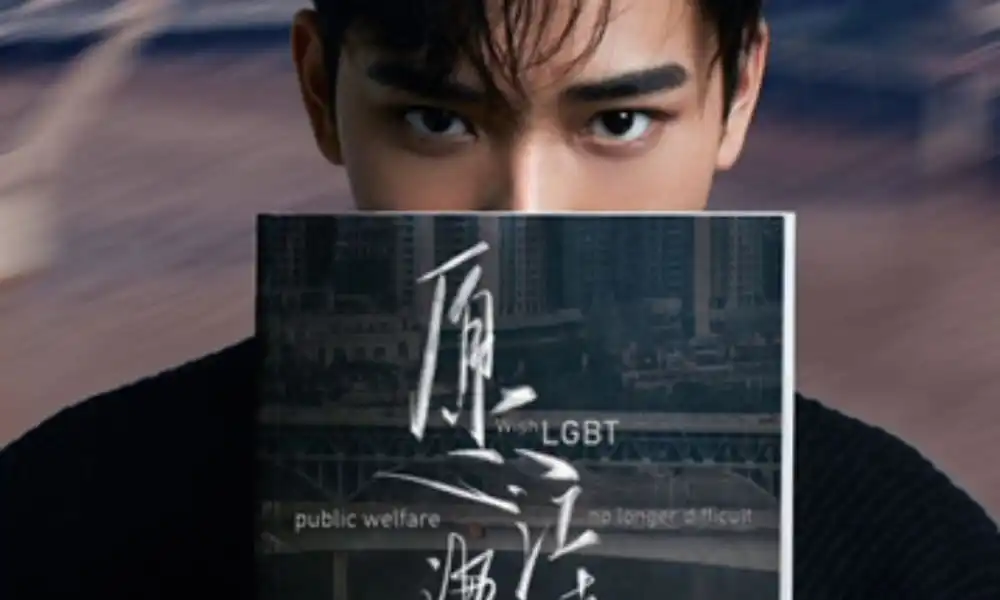The poster for Forbidden Love in Heaven. (Ran Yinxiao_
A simple film about a gay couple who adopt a homeless child, Forbidden Love in Heaven has become something almost unthinkable for LGBT+ filmmakers and moviegoers in China: a hit.
In a nation where acceptance of same-sex couples is progressing at a less-than-glacial rate, Chinese filmmakers have long been censored and nettled by authorities’ inability to acknowledge that LGBT+ people even exist.
But 19-year-old filmmaker Ran Yinxiao sought to challenge the industry with his film, Forbidden Love in Heaven, released on local streaming platforms in July 2020.
It was a “bold attempt to explore the difficulties that sexual minorities face in starting a family”, Yinxiao told South China Morning Post.
“My thinking was that if three different people without any blood ties could start a family, then this must be the world’s strongest family,” he said.
Indeed, the film presented a fresh test for media regulators, where the broadcasting of “vulgar, immoral and unhealthy content” is banned by the National Radio and Television Administration.
The agency’s regulations have forced many moviemakers to veil queer stories in subtext or cut and censor their films to get them aired – Yinxiao managed to drop the trailer for his film only after making it more “ambiguous”, he said.
“I think to myself, why do moviemakers exist?” Yinxiao added.
“Our camera lens is our weapon. We enlarge the aperture to allow more light to shine on the places of the world that aren’t easily seen.
Yinxiao, a Communication University of China film student, based his film on a real-life family. He said it had one simple aim: “I wanted to emphasise that an LGBT couple can raise and nurture a child too.”
Forbidden Love in Heaven received positive reviews on social media platform Weibo, the Post reported, and netted neutral coverage in state-run media. It was a small victory, Yinxiao acknowledged, but one that has buoyed him to continue making content that centres LGBT+ families.
“I hope our film is the start of this acceptance,” reflected Zhang Xin, an actor who played one of the film’s fathers.
“And I hope that in the future there’ll be more movies of this kind; maybe our movie can be a pioneer, a small pioneer.”
A study jointly conducted by the United Nations Development Programme, Peking University and the Beijing LGBT Center in 2016 found that only five per cent of “sexual and gender minority people” in China are “willing to live their diversity openly”.
In 2020 LGBT+ activists fought – and failed – to be counted in the country’s decennial census and demand marriage equality be finally legalised.
